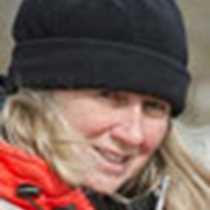Portimão & Silves, Algarve Region, Portugal
Time dissolves into a haze. It is not just that the past two days have been compressed into one of many more hours than normal. Many of us did fly all night to join our vessel in Lisbon so jet-lag could be blamed for a fuzzy sense of time. No, the reason does not lie within ourselves or what we might have done, but it can be found in the endless past that is wrapped within the history of the lands to which we have come.
Civilizations are layered one upon the other. Physically each may appear to obliterate the one that came before. However pieces remain not only discovered by painstaking archaeological excavations but in more subtle signs like the alignment and placement of streets. It was hard to believe that the sleepy little town of Silves that hosted our visit this afternoon was the Moorish capital of the region nearly a thousand years ago.
High on a hill overlooking the valley below, solid red sandstone castle walls seemed to speak of permanence, to give the illusion of having always been there. And maybe in our sense of a lifetime it has been. But much has gone before. Inside we found the signs of each layer of civilization being peeled away. Grids and ditches, carefully removed flagstones, sifted soils revealed the walls and shelters of preceding civilizations. Strange vaulted cisterns laid exposed like four horizontal silos. Once the source of water for besieged inhabitants they became a portal for escape through tunnel mazes and now lie silent as an oddity for inquiring eyes. As excavations proceed, what will they find below? Roman and Visigoth remains? Or does this hill conceal all the ages of man?
Outside the castle walls the world moves on. Cobbled streets wind between clean white or often colorful homes. The deep dark green leaves of orange trees paint slashes in the buffy colored soil and seem to shame the gray-green of adjacent olive trees. Almonds and carobs line the roads and here and there a cork oak grows still robust in spite of having been denuded of its bark. In Portimão, our vessel waits at the pier alongside aromatic eucalyptus logs ready for exportation. All around this larger city bustles. Construction speaks of prosperity and a healthy tourist industry. Bathers crowd the beaches on the Rio Arade. High on abandoned chimneys, huge stick nests await the return of storks next spring. And the cycle of life will go on. What will the next one thousand years bring?
Time dissolves into a haze. It is not just that the past two days have been compressed into one of many more hours than normal. Many of us did fly all night to join our vessel in Lisbon so jet-lag could be blamed for a fuzzy sense of time. No, the reason does not lie within ourselves or what we might have done, but it can be found in the endless past that is wrapped within the history of the lands to which we have come.
Civilizations are layered one upon the other. Physically each may appear to obliterate the one that came before. However pieces remain not only discovered by painstaking archaeological excavations but in more subtle signs like the alignment and placement of streets. It was hard to believe that the sleepy little town of Silves that hosted our visit this afternoon was the Moorish capital of the region nearly a thousand years ago.
High on a hill overlooking the valley below, solid red sandstone castle walls seemed to speak of permanence, to give the illusion of having always been there. And maybe in our sense of a lifetime it has been. But much has gone before. Inside we found the signs of each layer of civilization being peeled away. Grids and ditches, carefully removed flagstones, sifted soils revealed the walls and shelters of preceding civilizations. Strange vaulted cisterns laid exposed like four horizontal silos. Once the source of water for besieged inhabitants they became a portal for escape through tunnel mazes and now lie silent as an oddity for inquiring eyes. As excavations proceed, what will they find below? Roman and Visigoth remains? Or does this hill conceal all the ages of man?
Outside the castle walls the world moves on. Cobbled streets wind between clean white or often colorful homes. The deep dark green leaves of orange trees paint slashes in the buffy colored soil and seem to shame the gray-green of adjacent olive trees. Almonds and carobs line the roads and here and there a cork oak grows still robust in spite of having been denuded of its bark. In Portimão, our vessel waits at the pier alongside aromatic eucalyptus logs ready for exportation. All around this larger city bustles. Construction speaks of prosperity and a healthy tourist industry. Bathers crowd the beaches on the Rio Arade. High on abandoned chimneys, huge stick nests await the return of storks next spring. And the cycle of life will go on. What will the next one thousand years bring?




